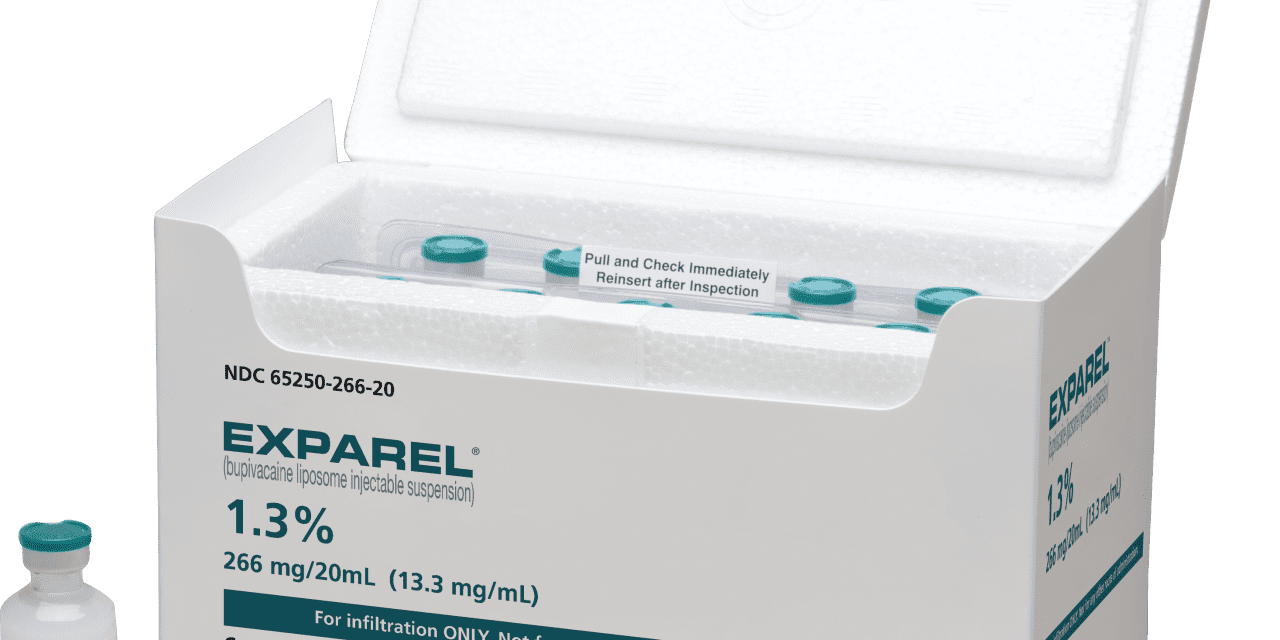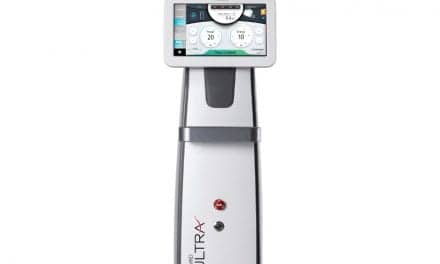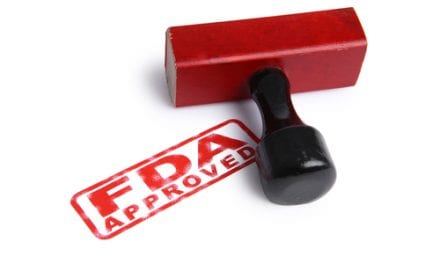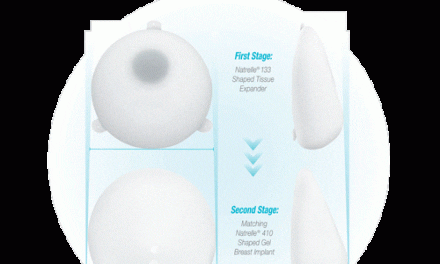Pooled data show that EXPAREL® (bupivacaine liposome injectable suspension) slashes opioid consumption, risk of opioid-related side effects, length of hospital stay, and cost following three frequently performed gastrointestinal surgeries.
Pacira’s EXPAREL is a non-opioid local analgesic that was approved by the US Food and Drug Administration in 2011. It is injected slowly into soft tissues of the surgical site and provides pain control for 3 days.
The pooled results from the IMPROVE studies are published in this month’s issue of the Journal of Pain Research. The studies included 191 patients who underwent three frequently performed gastrointestinal surgeries. Of the 191 patients included in the analysis, 105 received an opioid-based analgesic regimen via intravenous (IV) patient-controlled analgesia (PCA) and 86 patients received an EXPAREL-based multimodal pain management regimen.
According to the pooled analysis, the EXPAREL group showed:
- A 60% reduction in total narcotic consumption;
- A 67% reduction in incidence of opioid- related side effects;
- A 1.4-day reduction in median length of hospital stay; and
- A $2,455 savings in mean per-patient hospitalization costs.
The EXPAREL-Based Multimodal Regimen
Study participants were enrolled in sequential cohorts (IV opioid PCA cohort first, followed by liposome bupivacaine-based multimodal analgesia cohort). All screening procedures were completed within 2 weeks of surgery. On the day of surgery (study day 1), treatment of patients assigned to IV opioid PCA therapy was initiated as soon as possible after surgery. For patients assigned to multimodal analgesia, a single administration of liposome bupivacaine 266 mg in 0.9% normal saline was injected at the surgical site using a moving-needle technique prior to wound closure. (The 266-mg dose of liposome bupivacaine was expanded to a total volume of 40 mL in some open surgery studies.) Patients in the multimodal analgesia cohort also received a single administration of IV ketorolac 30 mg (or alternative IV nonsteroidal anti-inflammatory drug) at the end of surgery, followed by oral or IV acetaminophen 1000 mg plus oral ibuprofen 600 mg given every 6 hours (starting with patient tolerance of oral intake) for 72 hours after surgery.





